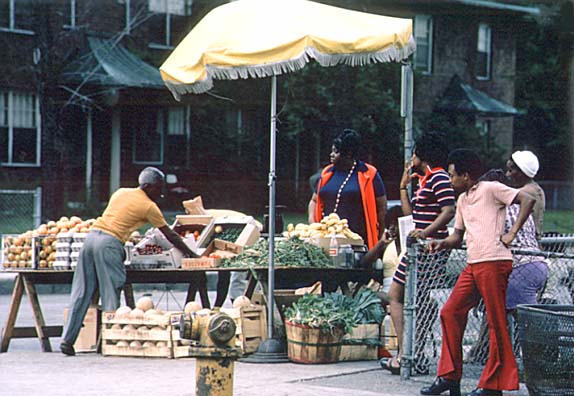
Image Credit: John H. White (1973) Image NWDNS-412-DA-13759
Portrait of Black Chicago for National Archives
John H. White's image of a sidewalk vendor in the South of Chicago in 1973 reminds me of Coye's and Laura's recent posts on the visuality of food culture. Looking closely, one gleans an untold story of race, urban food markets, and of the style of life in Chicago in the 1970s. White's series (Portrait of Black Chicago) was part of a program called Documerica, where the Environmental Protection Agency paid photographers to document environmental problems across America. I really like White's photos for how they conveyed everything from emotionally saturating pictures of the Black Muslim community to pictures of abandoned housing in the ghettos to pictures of the lake and skyline. White records narratives of race, which are intertwined with Chicago's political and religious history, but he also gives room to images of people's daily material lives in their environments, such as the initial photo above. I used this photo as part of the Best Practices for Digital images workshop, where we featured images archives that can enrich our teaching and scholarship.
Recent comments
2 years 29 weeks ago
2 years 44 weeks ago
2 years 44 weeks ago
2 years 50 weeks ago
3 years 4 weeks ago
3 years 4 weeks ago
3 years 4 weeks ago
3 years 6 weeks ago
3 years 6 weeks ago
3 years 6 weeks ago